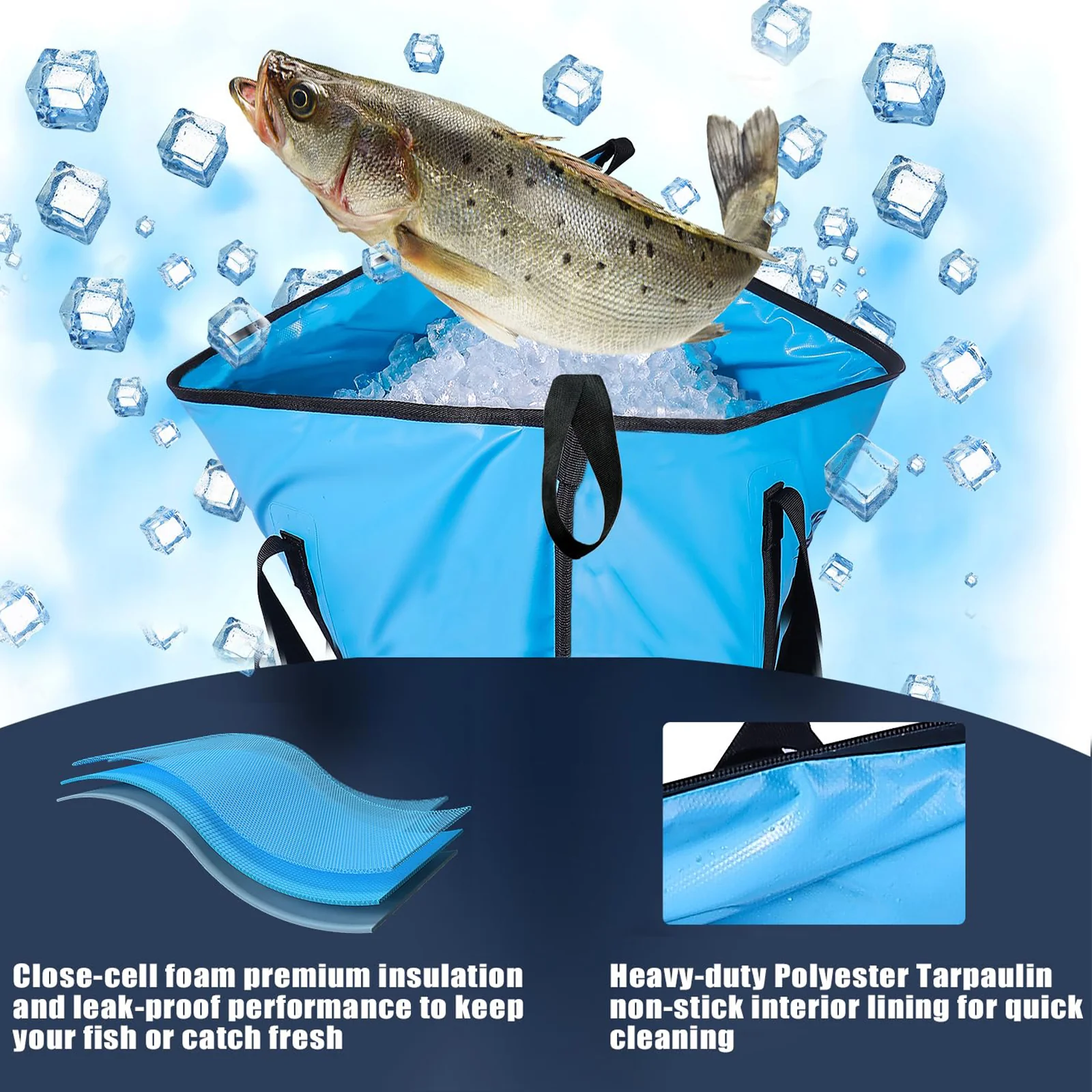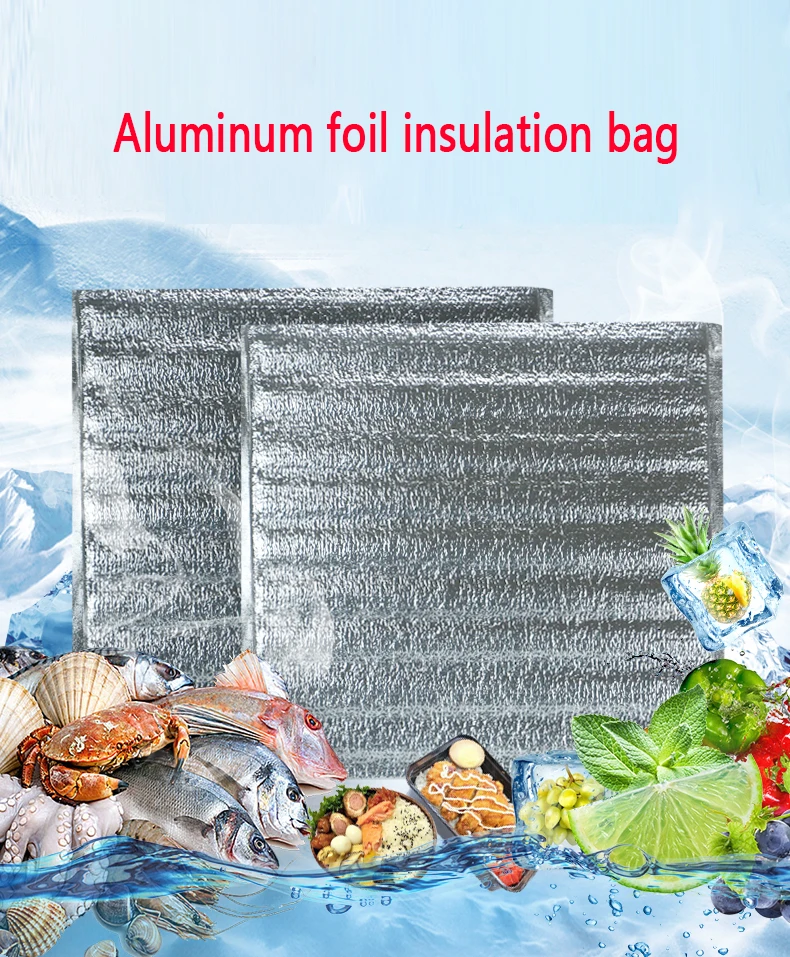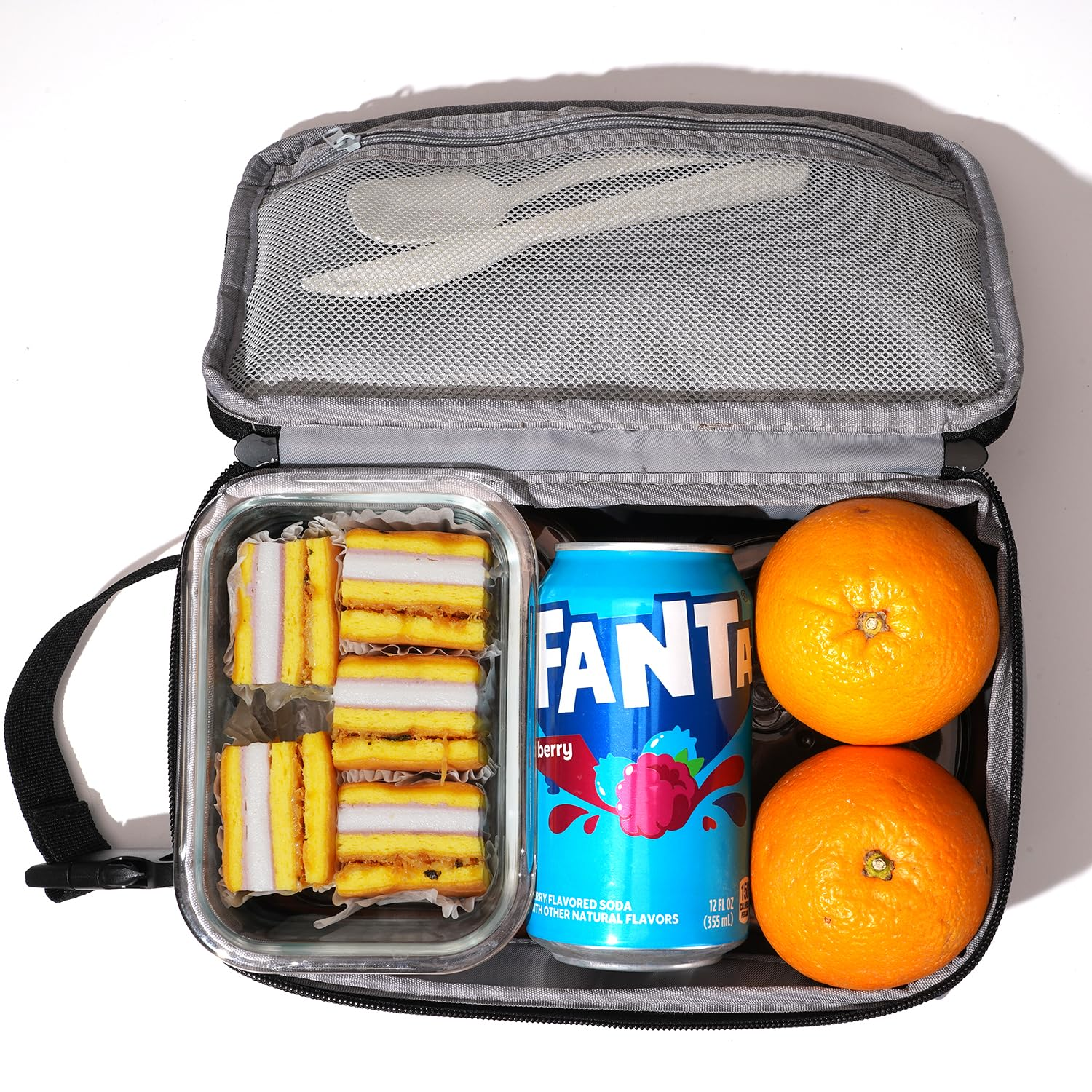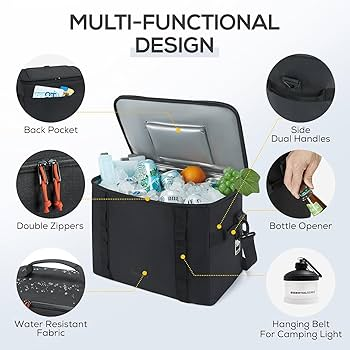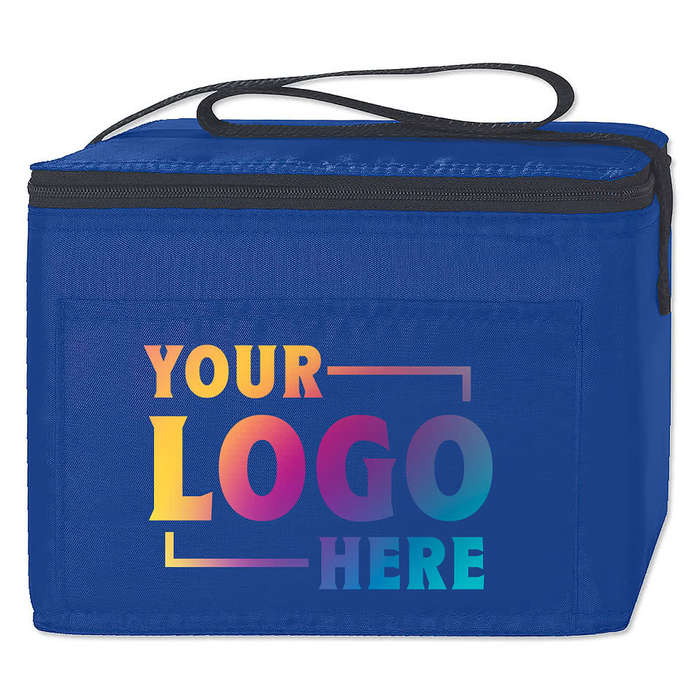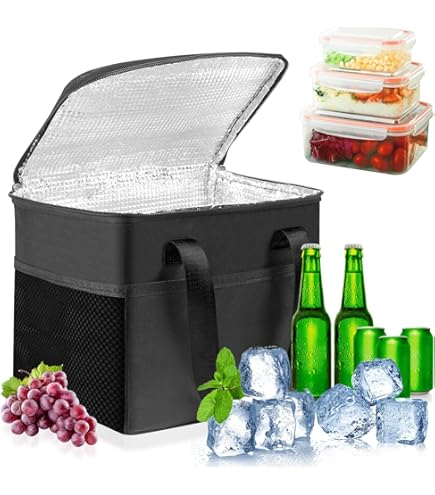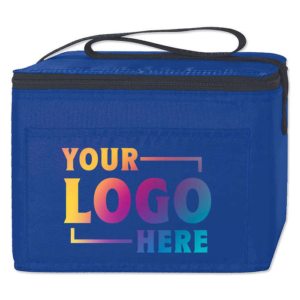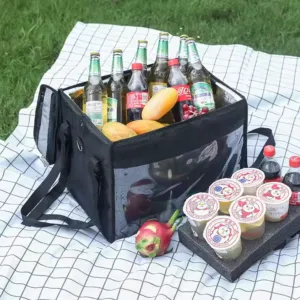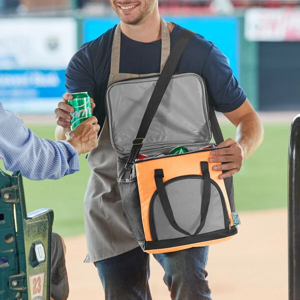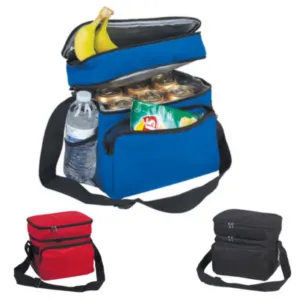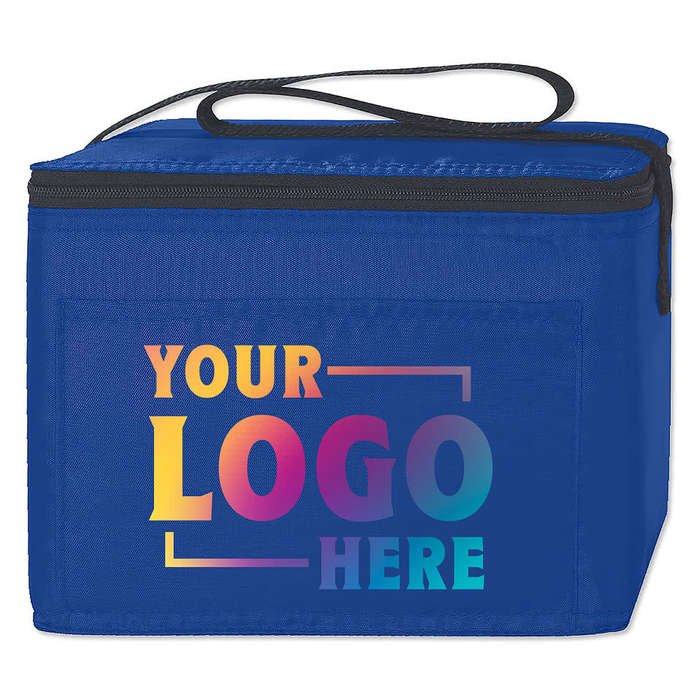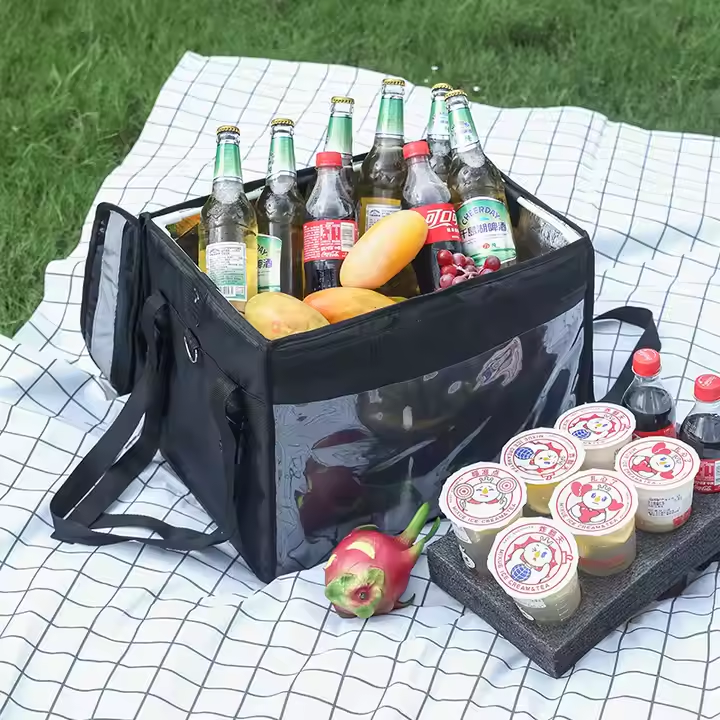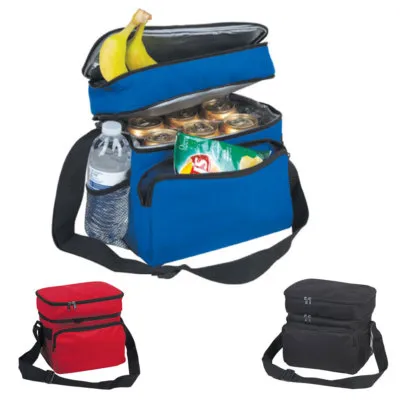Nano-coating technologies1 are transforming modern cooler bags by enhancing thermal insulation2, durability, hygiene, and sustainability. This article explores how nanoscale innovations are applied across materials and functions to deliver higher-performance cooler bags.
Applications of Nano-Coating Technologies in Modern Cooler Bags
Nano-coatings improve modern cooler bags by enhancing their insulation, antimicrobial properties, surface durability3, and sustainability4, significantly extending usability and performance.
Keep reading to learn how these invisible technologies are reshaping the way cooler bags work and last.
1. Enhanced Barrier Properties
Nano-films improve resistance to oxygen, water, and gases
Barrier Efficiency with Nanoparticles
| Coating Type | Base Nanomaterial | Function | Effectiveness Rating |
|---|---|---|---|
| SiO₂ (Silicon Dioxide) | Inorganic oxide | Moisture & oxygen barrier | High |
| TiO₂ (Titanium Dioxide) | Metal oxide | UV/oxygen barrier + antimicrobial | Very High |
| Nanoclay composites | Layered silicates | Gas and water vapor resistance | Moderate to High |
Nano-coatings form tight layers that restrict the passage of oxygen and moisture through cooler bag walls. This means the contents inside the bag stay cooler, fresher, and protected longer. SiO₂ and TiO₂ coatings are especially effective, thanks to their low permeability and high stability. The ultra-thin nature of these films ensures the bag remains lightweight and flexible.
2. Antimicrobial Protection
Surface treatments reduce bacterial growth and contamination
Common Antimicrobial Nanomaterials
| Nanoparticle Type | Antimicrobial Mechanism | Effective Against |
|---|---|---|
| TiO₂ | Reactive oxygen species (ROS) | Bacteria, viruses, mold |
| Silver nanoparticles | Cell membrane disruption | Bacteria, fungi |
| ZnO (Zinc Oxide) | Ion release + ROS generation | Broad-spectrum microbes |
Nano-coatings with antimicrobial materials help prevent the growth of harmful microbes inside cooler bags. This is especially helpful for food storage or takeaway packaging. TiO₂ is often used due to its dual benefit: it enhances barrier properties and kills bacteria on contact under light exposure. These coatings extend shelf life, improve food safety, and reduce odors from microbial decay.
3. Increased Durability and Protection
Nano-coatings resist scratches, stains, and moisture
Durability Enhancements
| Feature | Benefit | Nanomaterial Example |
|---|---|---|
| Scratch Resistance | Retains bag appearance | SiO₂, hybrid polymers |
| Water Repellency | Keeps surfaces dry | Fluorinated coatings |
| Anti-fouling | Prevents stains, easy cleaning | Superhydrophobic films |
Durability matters for cooler bags used frequently outdoors or for delivery. Nano-coatings help the bags resist daily wear, making them more reusable. Superhydrophobic surfaces cause liquids to bead and roll off, reducing cleaning needs. This not only extends the bag’s usable life but also improves customer experience for food service companies and retail businesses.
4. Thermal Reflectivity and Passive Cooling
Nanotech reflects heat to boost passive cooling
Reflective Cooling Materials
| Technology Type | Reflective Material | Heat Reduction Capability |
|---|---|---|
| Aluminum-nanofilm mix | Recycled metal composites | High |
| Polymer nanocomposites | UV-reflective fillers | Moderate to High |
| Ceramic coatings | Infrared-reflective oxides | High |
Recent innovations apply nanocomposite coatings that reflect sunlight and block heat entry. These materials are ideal for cooler bags used in hot climates. Some coatings are based on recycled aluminum-plastic blends5 that reduce solar heat gain. By lowering internal temperature rise, bags maintain contents at safe levels longer without needing added ice or refrigeration.
5. Sustainable and Scalable Manufacturing
Nano-barriers on compostable or paper materials reduce environmental impact
Scalable Nano-Coating Technologies
| Company Example | Coating Feature | Application Platform |
|---|---|---|
| Amcor | Vacuum-free nano-barrier layers | Compostable film packaging |
| BASF | Oxygen barrier nanopolymers | Bio-based substrates |
| Mitsubishi Chemical | Cellulose-based nanolayers | Paper packaging + coolers |
Sustainability is driving packaging innovation. Nano-coatings can now be applied to bio-based and recyclable materials without compromising barrier protection. This enables the use of paper or PLA-based cooler bags with the same performance as plastic-based versions. Such advancements align with eco-goals of retailers and reduce the environmental footprint of mass-use products.
Conclusion
Nano-coating technologies1 add invisible yet powerful benefits to modern cooler bags. These ultrathin layers improve temperature retention, resist microbial growth, and boost durability—while enabling sustainable material use. Based on what we've seen in manufacturing, this is one of the most promising areas for innovation in eco-friendly, high-performance bags.
If you are a business seeking durable, hygienic, and brandable cooler bag solutions, consider adopting nano-enhanced designs. Let us know in the comments how your company is using advanced materials to meet today's market demands.
-
Explore how nano-coating technologies enhance cooler bags' performance and sustainability. ↩ ↩
-
Learn about the science behind thermal insulation and its importance in cooler bags. ↩
-
Understand the significance of surface durability in extending the life of cooler bags. ↩
-
Find out how nano-coatings help create eco-friendly packaging solutions. ↩
-
Learn about the innovative use of recycled materials in enhancing cooler bag efficiency. ↩

